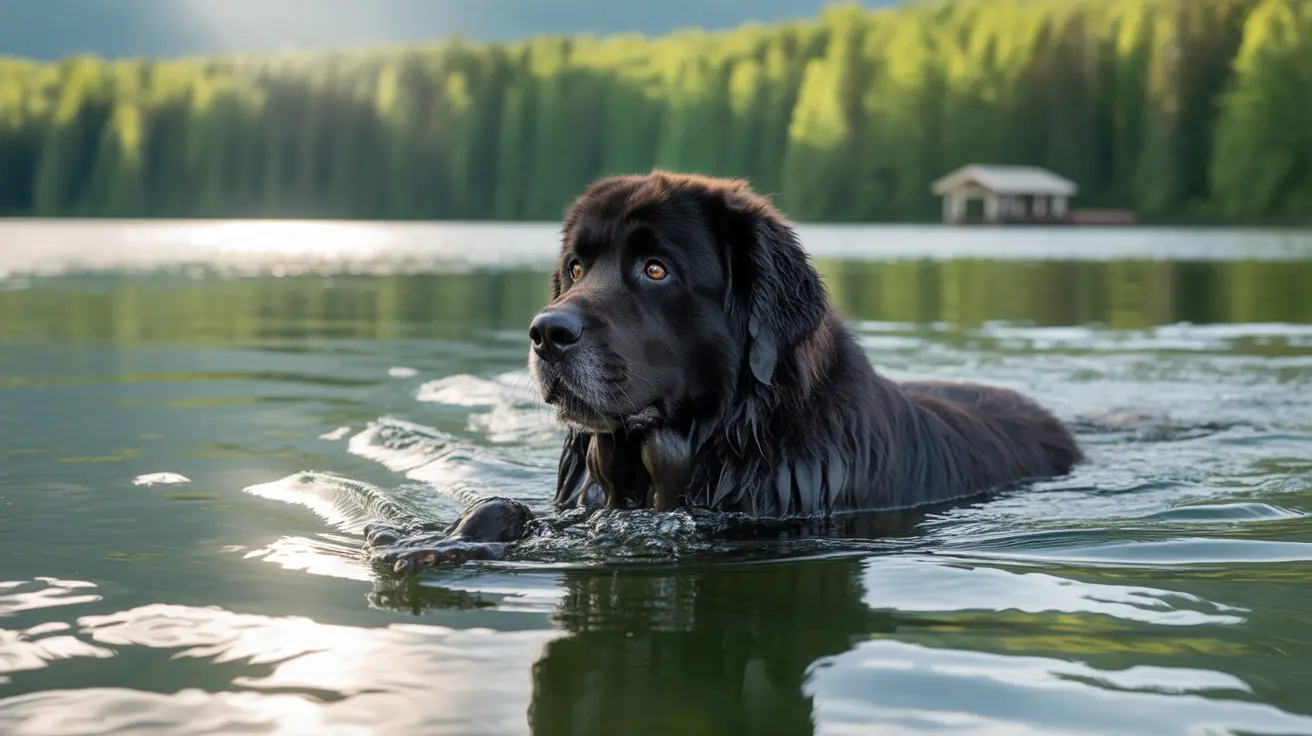The majestic full grown Newfoundland dog is one of the most impressive giant breeds, known for its gentle nature and impressive stature. These gentle giants capture hearts with their combination of strength and sweetness, but their size and specific care requirements deserve careful consideration from potential owners.
Whether you're a current Newfoundland owner or considering bringing one into your family, understanding their growth patterns, health needs, and care requirements is essential for ensuring a long, healthy life for these remarkable dogs.
Size and Physical Characteristics of Full Grown Newfoundland Dogs
Adult Newfoundlands are truly impressive in size. Male Newfoundlands typically reach weights between 130-150 pounds and stand about 28 inches at the shoulder. Females are slightly smaller but still substantial, weighing 100-120 pounds and standing approximately 26 inches tall.
Their distinctive features include a thick, water-resistant double coat that can come in black, brown, gray, or Landseer (white with black markings). They also possess webbed feet, a broad head, and a powerful, muscular build that reflects their working heritage.
Growth and Development Timeline
Newfoundland puppies follow a predictable but lengthy growth pattern. Most puppies weigh between 15-17 pounds at 8 weeks old, but their growth accelerates rapidly during the first year. By 6 months, males often reach 50-60 pounds, while females typically weigh 40-50 pounds.
Full physical maturity usually occurs around 24 months, though some may continue filling out until age three. This gradual growth period is crucial for proper bone and joint development.
Health Considerations and Care Requirements
Full grown Newfoundland dogs face several breed-specific health challenges. Hip and elbow dysplasia are particularly common, affecting up to 24.8% and 22.7% of the breed respectively. Heart conditions, including dilated cardiomyopathy, also require vigilant monitoring.
Regular veterinary check-ups, appropriate exercise, and proper nutrition are essential for maintaining their health. Swimming provides excellent low-impact exercise that aligns with their natural abilities and helps maintain joint health.
Nutrition and Exercise Needs
Feeding a full grown Newfoundland requires careful attention to portion control and nutritional balance. High-quality dog food formulated for giant breeds helps support their substantial frame while preventing obesity, which can exacerbate joint issues.
Exercise should be moderate and consistent, avoiding high-impact activities that could stress their joints. Daily walks and supervised swimming sessions provide ideal physical activity while strengthening the bond between dog and owner.
Grooming and Maintenance
The thick double coat of a full grown Newfoundland requires significant grooming attention. Regular brushing, at least 2-3 times per week, helps manage shedding and prevents matting. Professional grooming every few months can help maintain coat health and manage their substantial seasonal shedding.
Additional care includes regular nail trimming, ear cleaning, and dental hygiene to prevent common health issues that can affect large breeds.
Frequently Asked Questions
How much does a full-grown male and female Newfoundland dog typically weigh and stand?
Male Newfoundlands typically weigh 130-150 pounds and stand 28 inches at the shoulder, while females weigh 100-120 pounds and stand 26 inches tall.
At what age does a Newfoundland dog usually reach its full adult size and weight?
Newfoundlands typically reach their full size by 24 months (2 years), though some may continue to fill out until age three.
What are the key health concerns and common genetic issues in full-grown Newfoundland dogs?
Key health concerns include hip and elbow dysplasia, dilated cardiomyopathy, gastric dilatation-volvulus (bloat), and various heart conditions. Regular veterinary screening is essential for early detection and management.
How should I manage the diet and exercise of a Newfoundland puppy to ensure healthy growth?
Feed high-quality giant breed puppy food in controlled portions to prevent rapid growth. Exercise should be moderate and age-appropriate, avoiding high-impact activities during growth phases. Swimming is an excellent exercise option.
What grooming and care routines are essential for maintaining the coat and overall health of a full-grown Newfoundland?
Regular brushing 2-3 times weekly, professional grooming every few months, nail trimming, ear cleaning, and dental care are essential. Their double coat requires particular attention during seasonal shedding periods.






